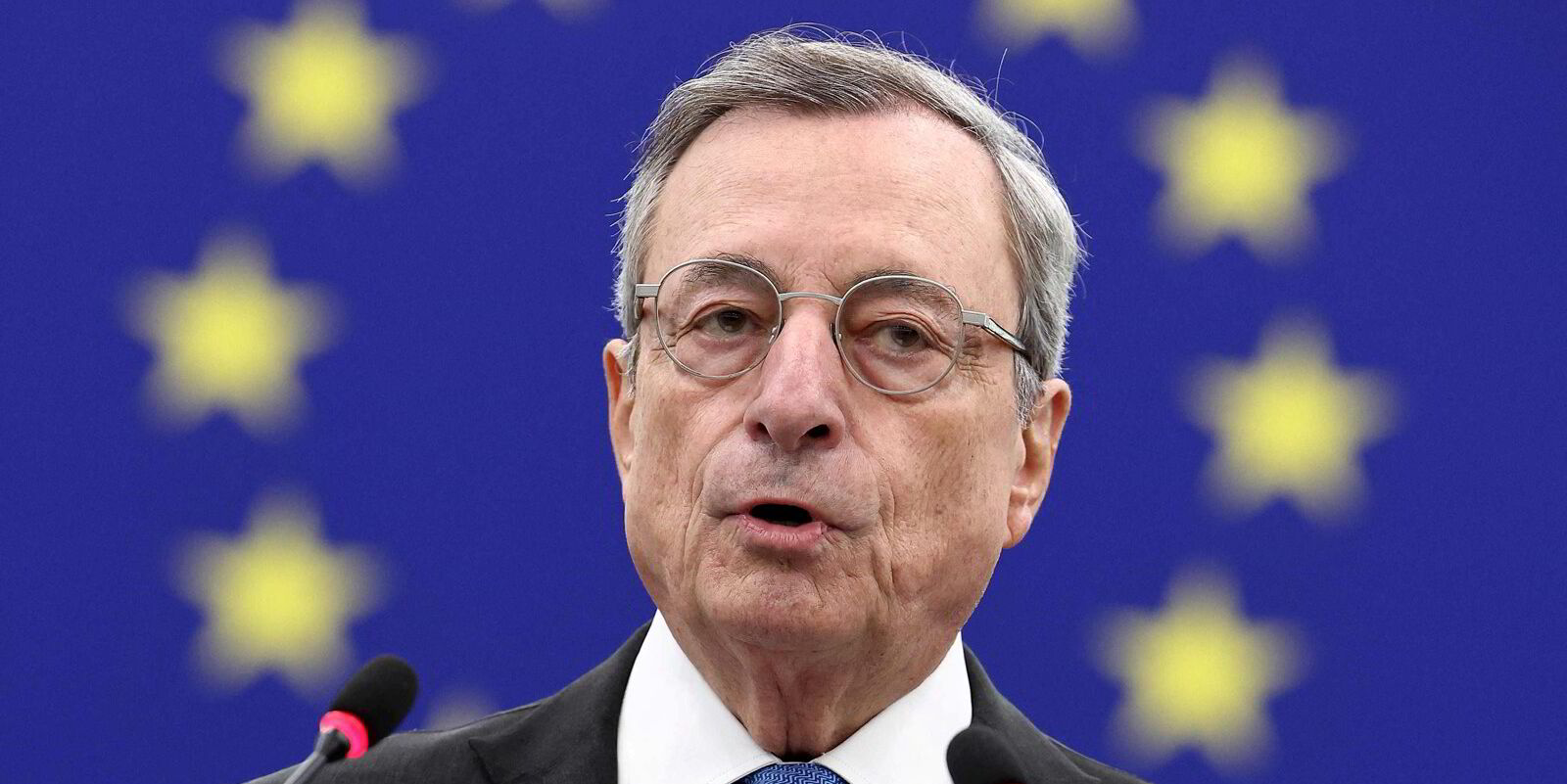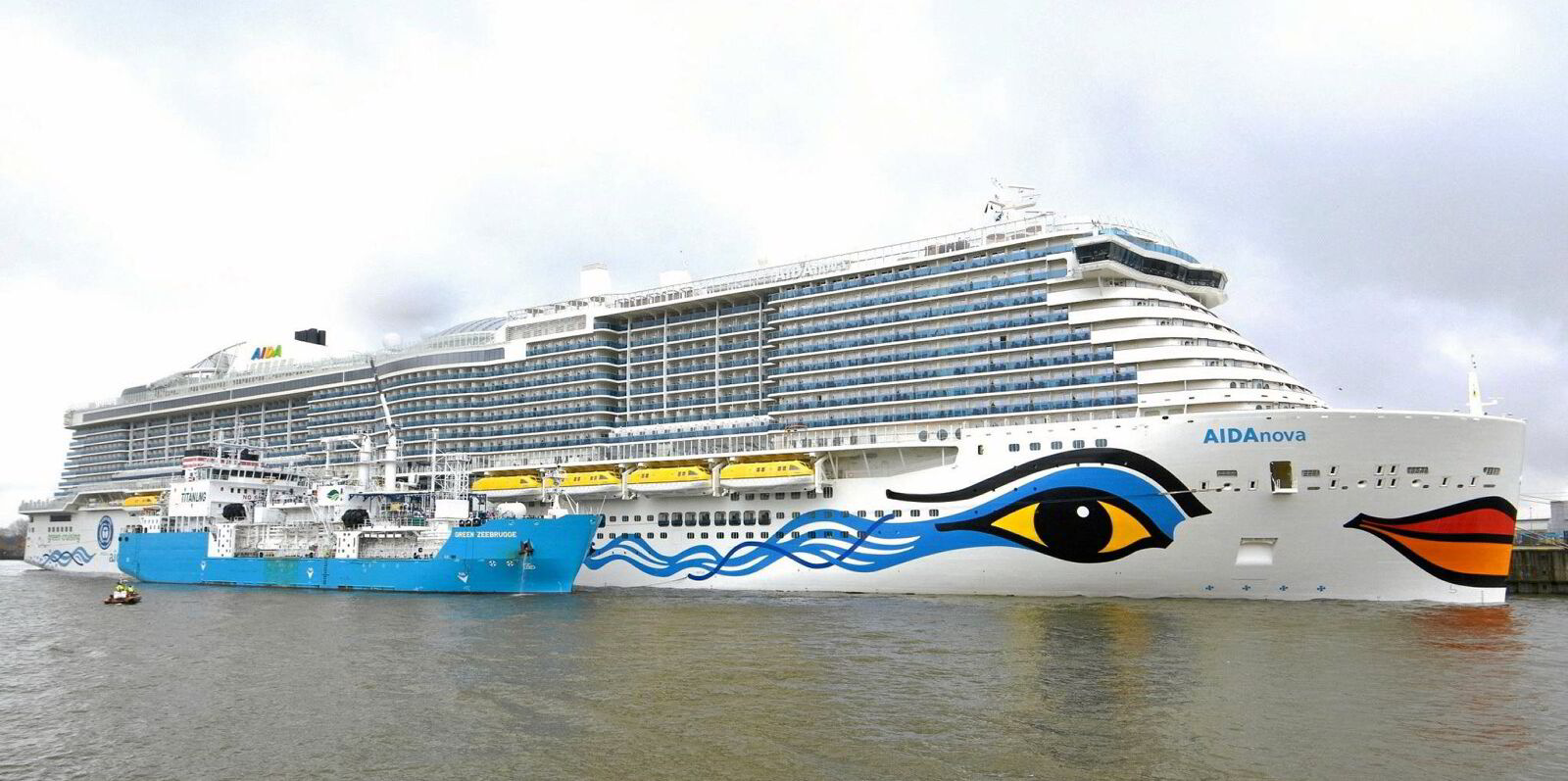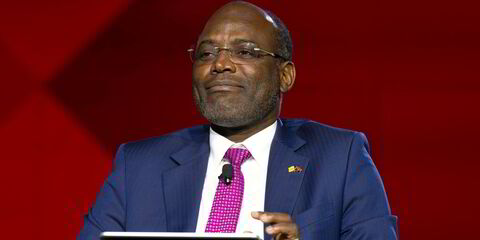Shipping will need around $40bn a year over two decades to build supply chains for alternative fuels if the European Union is to meet its energy transition goals, according to a new report drawn up by former Italian prime minister and European Central Bank head Mario Draghi.
Exploring the future of European competitiveness, the report floats a blueprint aimed at steering the European Commission’s work over the next five years.
The 69-page document states that the maritime industry will require around €40bn ($44.5bn) each year from 2031 to 2050 to help the EU achieve its elevated environmental goals.
Describing decarbonisation as a “competitive disadvantage” for the EU, given the bloc’s more ambitious environmental goals vis-a-vis the US and China, Draghi identifies the maritime and aviation sectors as the “hardest-to-abate” parts of the transport sector.
If the EU fails to start building a supply chain for alternative fuels, the costs of meeting its environmental targets will be “significant”, Draghi warned.
The Draghi report has been met with enthusiasm, both by shipowner organisations and NGOs following the industry.
Faig Abbasov, shipping programme director of Brussels-based NGO Transport & Environment, said: “We can’t expect to have clean fuels in sufficient quantities unless there is an industrial EU policy to go along with the Green Deal and post-2030 climate agenda.”
The shipowner lobby in Brussels also welcomed the report, taking it as an opportunity to present a position paper on how to safeguard the industry’s competitiveness.
At least 40% of the clean fuels needed for shipping to reach its FuelEU targets should be produced in Europe, the European Community Shipowners’ Associations (ECSA) said as part of its policy recommendations.
“Scaling up manufacturing capacity for clean shipping fuels in Europe is crucial for the green and digital transition of shipping,” ECSA said.
On 12 September, ECSA even teamed up with fuel producers to launch a joint consultation group about how to make this happen.
As part of a newly set up Clean Maritime Fuel Platform, ECSA representatives will hold regular meetings with counterparts from the FuelsEurope, eFuel Alliance, EWABA and HydrogenEurope groups.
ECSA secretary general Sotiris Raptis said, “We need all hands on deck to make the energy transition happen.”





